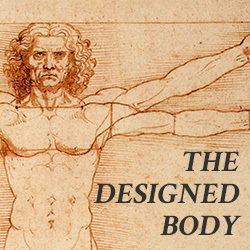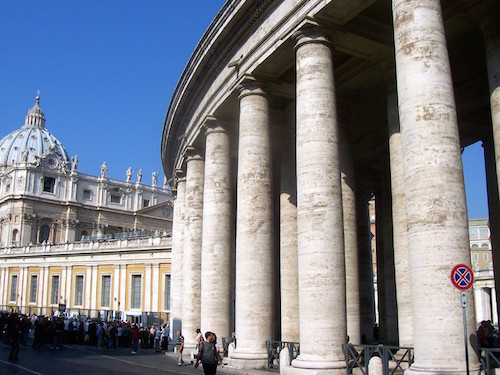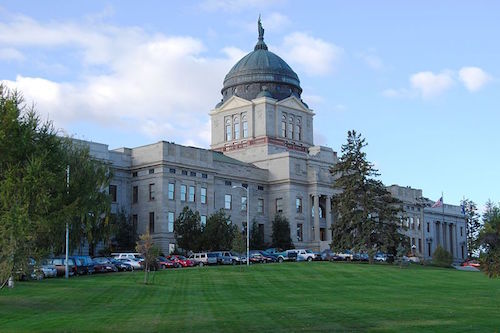Discovery Institute's Blog, page 152
June 22, 2015
Laudato Si' and Science Apocalypse
Father Robert Sirico of the Acton Institute has a superb reflection on Pope Francis' new encyclical Laudato Si', in which the pontiff discusses global warming and related implications for humanity.
Fr. Sirico welcomes the Pope's call for honest respectful discussion, and he praises the pontiff's rejection of overpopulation "science" and the use of atrocities like abortion to advance the environmentalist agenda. Fr. Sirico takes issue, rightfully in my view, with the Pope's implicit denigrati...
Cardiovascular Function: The Body's Irreducibly Complex System for Controlling Potassium Content

Editor's note: Physicians have a special place among the thinkers who have elaborated the argument for intelligent design. Perhaps that's because, more than evolutionary biologists, they are familiar with the challenges of maintaining a functioning complex system, the human body. With that in mind, Evolution News & Views is delighted to present this series, "The Designed Body." Dr. Glicksman practices palliative medicine for a hospice organization.
 This series has demonstrated that, in contra...
This series has demonstrated that, in contra...
June 21, 2015
Listen: Dr. Wolf-Ekkehard L��nnig on the Law of Recurrent Variation

On an episode of ID the Future, Dr. Wolf-Ekkehard Lnnig, a retired geneticist from the Max Planck Institute for Plant Breeding Research, sits down with Casey Luskin to discuss a topic on which he has published widely: the law of recurrent variation.
Tune in as Dr. Lnnig gives the background to the law of recurrent variation and explains how efforts in mutation breeding have failed to bring about the expected revolution in plant and animal breeding.
June 20, 2015
Academic Freedom, You Say? Princeton Should Treat Peter Singer Like a Racist
In recent days, we have seen college professors forced out of their positions over relatively minor infractions of politically correct dogma. But Peter Singer says human beings should not all be treated equally, indeed that some among us can be killed -- and for that kind of pernicious advocacy, Princeton is all for academic freedom.
That was the university's response to the call by disability rights activists that Singer resign. From the Aleteia story:
Protestors from Not Dead Yet Pennsylv...
June 19, 2015
Two Things "You Probably Won't Hear about Pope Francis' Encyclical"

Our friends over at The Stream appear to have read Pope Francis' encyclical, Laudato Si', more carefully than some premature pundits. They point out "11 Things You Probably Won't Hear about Pope Francis' Encyclical." Two of those are particularly relevant to our concerns here:
(1) Creation has a Creator, and is more than just "nature-plus-evolution":
(75) A spirituality which forgets God as all-powerful and Creator is not acceptable. That is how we end up worshipping earthly powers, or ourse...
Student Perspectives: Addressing Two Montanans' Concerns over an Academic Freedom Bill

Writing in the Great Falls Tribune this spring, two Montana high school students offered responses to their state's proposed academic freedom bill. Although the bill did not pass, I would like to address the articles by Kye Burchard (con) and Quincy Balius (pro) since others may share their views. I will focus mainly on Mr. Burchard's objections.
Although he opposed the academic freedom bill, he did an admirable job in trying to argue for his position. His premises are mistaken, but he argu...
Must We Directly Observe the Intelligent Agent to Detect Design?

Yesterday I discussed an email exchange with an atheist student who argued that we cannot detect design in nature unless we directly observe an intelligent designer. I explained the flaw in his objection through an analogy.
Let's say you find the remains of a campfire -- e.g., charred wood, a circle of stones, and smoldering ashes. You may reasonably infer that a campfire was present, even if you didn't see the fire as it burned. In the same way, we understand the kinds of effects that are...
Does Intelligent Design Deserve Academic Freedom?
Over at The Conversation, Peter Ellerton rightly points out that "How a debate is framed can change the point at issue." Ellerton, who is Lecturer in Critical Thinking at the University of Queensland, uses intelligent design as an example of how framing can affect the outcome of an argument:
Realise, for example, that the point of not teaching Intelligent Design in science classes is one of quality control, not of academic freedom.Now Professor Ellerton is himself an expert in framing issues...
June 18, 2015
Can We Detect Design Without Knowing the Identity of the Designer?

Recently an atheist student emailed me to ask how it's reasonable to claim that an "unobserved designer" is responsible for complex features of nature, like high CSI (complex specified information) and irreducibly complex structures. In reply, I explained that first we must ask the question "What does it mean to 'observe' or 'detect' something?" Here's a start: Our eyes can help us observe objects in nature by seeing light reflected from those objects. Our ears can help us detect objects in...
Pope Francis Embraces Human Exceptionalism

There was some buzz in the liberal Catholic press that Pope Francis might embrace "nature rights." I suggested that course could lead to a schism in the Catholic Church because it would essentially elevate nature to human status, or perhaps better stated, reduce us to just another animal in the forest.
While I think Francis has ignored the many efforts humankind undertakes to protect the environment, at least he has rejected "biocentrism." From the encyclical:
A misguided anthropocentrism ne...
Discovery Institute's Blog
- Discovery Institute's profile
- 15 followers





